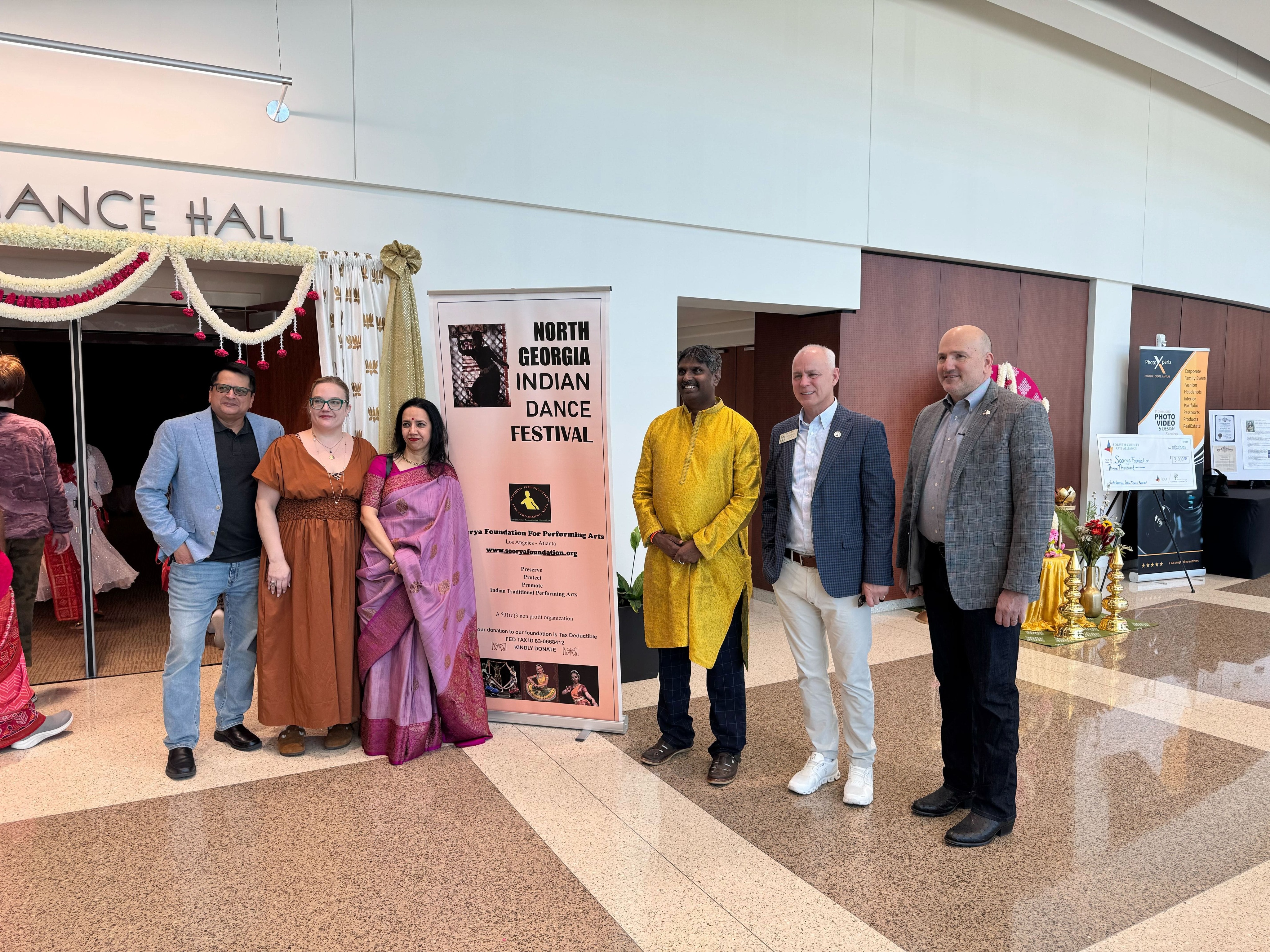The alleviating nature of Music
Oncologist Dr. Tara Rajendran, who has played the veena since the age of 7, is one of two finalists for the Hidden Compass 2024 Pathfinder Prize.
 Tara Rajendran / Image - Supplied
Tara Rajendran / Image - Supplied
Can music cure cancer?
A decisive no, says Dr. Tara Rajendran, an oncologist and Indian classical musician. But it can certainly soothe the soul, and relieve some of the anxiety a patient experiences while undergoing treatment and considering mortality.
Rajendran is one of two finalists for the Hidden Compass 2024 Pathfinder Prize. She made her pitch to judges Nov. 1, exploring the intersectionality of medicine and music. Rajendran is in competition with a group of LGBTQ Alpinists, who propose to climb the Matterhorn to discover the history of queer climbers. Voting began Nov. 1 evening. One winner will be announced Nov. 13.
In an interview with New India Abroad, shortly after pitching to judges, Rajendran explained her research on music in medicine. Here are excerpts from the interview.
NIA: How did your pitching session go?
TR: It went really well for both the teams. It was really competitive because this year there were proposals from around the world. What they told us was my pitch was moving and different, because it had an element of music as well as medicine.
Your grandmother suffered from cancer. Did that influence your work?
TR: I was five years old and one of my earliest memories is waking up in the middle of the night listening to my grandmothers screaming with back pain. Blood cells are formed in the bone marrow right in the back. There is this uncontrolled division of cells and they just keep multiplying and the bone is getting expanded. So anything in bone is extra painful. She was bedridden and the pain was excruciating.
So my mother and my maternal uncles used to play classical music. They used to play this particular composition called Mohanam. Even high dose analgesics, nothing can avert that amount of pain, but that music was helping her cope with stress and anxiety.
Witnessing this, my uncle thought I should learn music. I think it all roots back to this particular anxiolytic impact of music that his mother was able to experience. I was put into vocal classes and veena classes when I was seven years old. I kept performing, winning state and district competitions.
But then you started medical school, correct?
TR: Yes, and there was no time for me to travel and perform.
I was always inclined towards oncology as a specialty. I came to the US and studied at Harvard, Stanford, and Cornell. And I observed: in every hospital reception area, the lobby or a chemotherapy room, anywhere and everywhere, there was music, be it passive music or live music. There will be a grand Steinway piano, or somebody will come and play or a cello. That was kind of an epiphany. Western classical music is amazing and it's incorporated into the healthcare infrastructure so beautifully.
But you can’t just give any kind of music. Music is associated with autobiographical memories. Music medicine works best when the patient has selected the music.
In Alzheimer’s disease, even as the memory goes, the musical memory is preserved. It is fascinating research, and we are only at its frontiers.
Cancer comes with a lot of psychological burdens. There is guilt, there is shame, there is a fear of recurrence and ‘what will happen to my children if something happens to me?’
If you approach the subject holistically, if you can improve quality of life slightly, that's going to hugely impact the patient’s outcome in the long run, not only of the patient but also of the caregiver’s.




.jpg)
.png)

.webp)
.png)



.jpg)




Comments
Start the conversation
Become a member of New India Abroad to start commenting.
Sign Up Now
Already have an account? Login